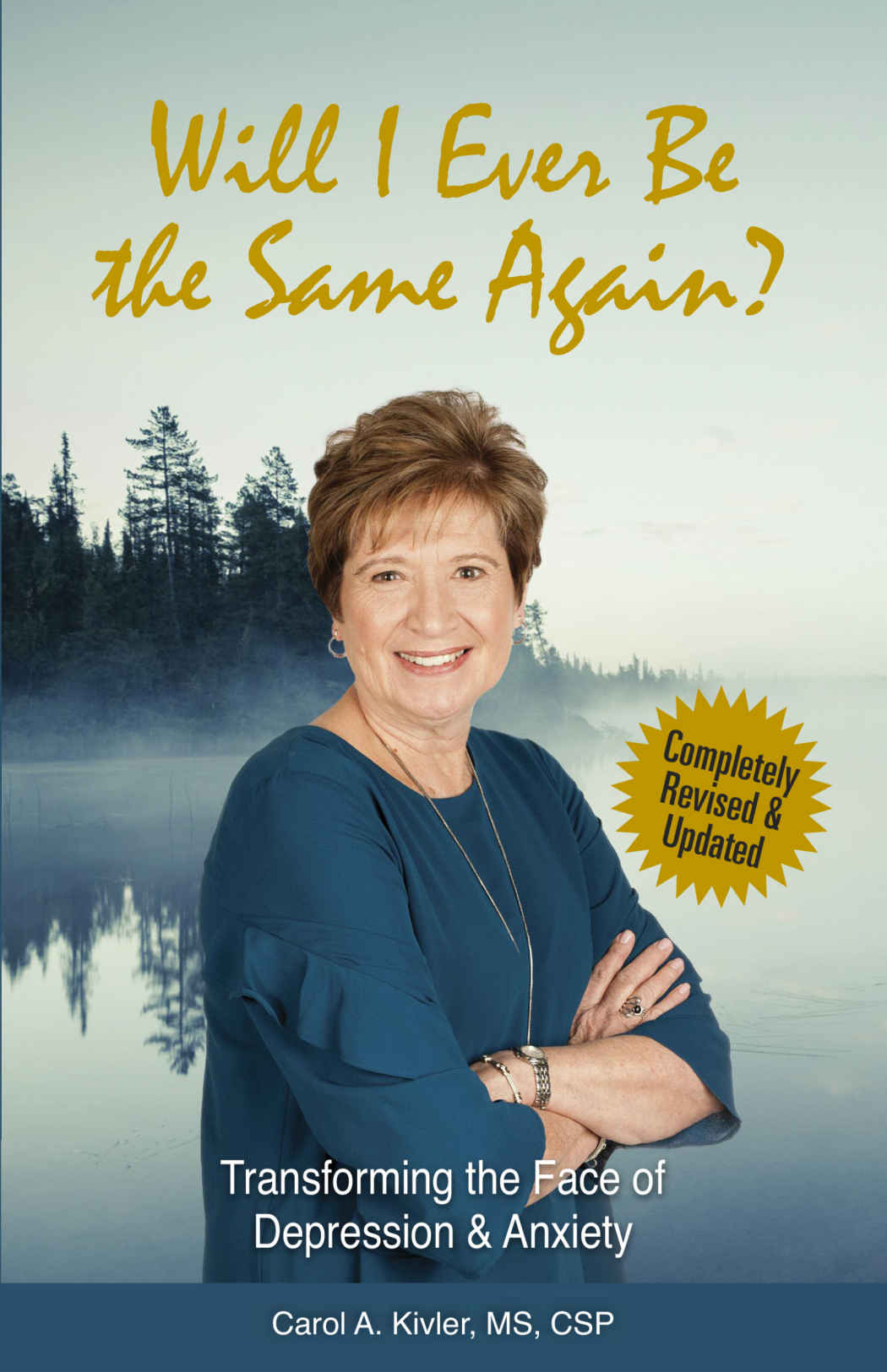The Five B’s for Dealing with Loved Ones Who Are Depressed
Have you ever walked a tight rope? That’s how it feels when you live with, love or care for someone who is in the midst of a severe depression. And considering the fact that one out of four Americans will face a depressive episode in his or her lifetime, it’s likely you’ll witness someone close to you, challenged by depression.
 As your relationship with the depressed individual (the consumer) changes due to the illness, you may find yourself feeling sad, misled, resentful, guilty, exhausted, worried and a whole lot of other emotions. That’s a lot of “weight” to manage especially if you have a rather heavy load in life already. How do you strike a balance that honors the consumer, while protecting your own well-being?
As your relationship with the depressed individual (the consumer) changes due to the illness, you may find yourself feeling sad, misled, resentful, guilty, exhausted, worried and a whole lot of other emotions. That’s a lot of “weight” to manage especially if you have a rather heavy load in life already. How do you strike a balance that honors the consumer, while protecting your own well-being?
The experiences of the consumer’s loved ones (meaning you) are challenging and often overlooked, yet friends and family are a key part of recovery for the consumer, and so the healthier you remain, the greater support they receive in return.
Having been diagnosed with clinical depression, I walk the road of the consumer. I have observed the state of discomfort from both my family and friends.They didn’t know what to do or say to support me during my hospitalizations or the months of recovery from my episodes. There were many ways they could help me, but they didn’t know how, and in a severe state of depression, I didn’t have the strength to show them.
Through my own lived experience as well as the experiences of the audience members with whom I now speak, I offer tips to enrich and enhance the lives of the consumers, their loved ones and health care providers. Following are the “Five B’s” for effectively dealing with the consumer:
Be a Good Listener:
Share your concern for the individual and offer your observations. Then follow up with some open-ended questions. Allow the individual an opportunity to talk. “What are you feeling?” or “What three things can I do to make you feel supported?” Assure the individual you are not there to judge but rather to provide a listening ear. Depression is a topic that is hard to talk about and sometimes harder to listen to. But since many depressed individuals are consumed by anxiety and ruminating thought patterns, having someone to share them with makes a difference.
Be Patient:
People who are depressed can take a long time to accept their own illness. Your patience can enhance their ability to accept their illness, and thereby reduce the amount of time it takes them to agree to treatment. Your patience translates as acceptance in the consumers’ mind and it will help them through the waiting period before their medication takes effect, or when one medication after another fails. Overall, your ability to remain patient will increase their ability to remain hopeful for recovery.
Be Encouraging:
Encouragement is like a crutch to a depressed individual. Depression steals self-motivation, and that’s why encouragement from a loved one is so important. Encourage them to seek services of a professional without shame or embarrassment. Reassure them that depression is very common and very treatable, and that recovery is more than a possibility; it’s a probability. Encourage them to take one day at a time and tackle one task at a time – to focus on the fact that things don’t have to be perfect. Help them to avoid setting unrealistic goals that can further the depression. Unattainable goals just set the consumer up for failure; therefore setting very small achievable goals are empowering and increase the chances of recovery.
Be Available:
Depression causes one to withdraw from life. Keeping in touch with your friend or loved one through visits, phone calls, emails, note cards, etc. helps them to stay involved and interactive, as well as feel valuable and loved. It also reminds them that they are not alone. While visiting, suggest a short walk. The walk will provide a diversion but more importantly give the person a little exercise. Most importantly, just let them vent!
Be Objective:
Separate yourself from the illness! You can’t help the depressed individual if you begin to own the depression. You can’t fix them, you can only offer love and support, and therefore your top priority must be you! Keep yourself healthy and happy, and know your limitations. Have people you can turn to lighten the load and bring laughter into your life. Also, remember that there is no straight line to recovery. Depression can seem like a thief in the night that comes and goes without warning. Awareness of this fact will stop your life from going into a tail spin when your loved one has a setback.
A final note, depression is as real as any physical illness and can be even more debilitating than a physical illness. When you acknowledge, understand, and accept that individuals struggling with depression need the same loving concern and care as those with physical illnesses, you increase their chance of recovery. Be a role model of strength, positivity and compassion.
About the Author:
Carol A. Kivler, MS, CSP, is an international executive coach/corporate trainer, nationally recognized professional speaker and passionate consumer advocate. She is also the founder of Courageous Recovery, Inc. a 501 (c) (3) non-profit organization. She speaks to mental health professionals, medical/nursing students, organizations, associations and consumers, to raise awareness, instill hope and combat stigmas surrounding mental health diagnoses and treatments. Carol shares her journey of recovery from four bouts of medication-resistant depression, ultimate treatment and sustained recovery in her newly updated and revised book, “Will I Ever Be the Same Again? Transforming the Face of Depression & Anxiety”. The book is available via amazon.com or at www.carolkivler.com.
Visits: 18




